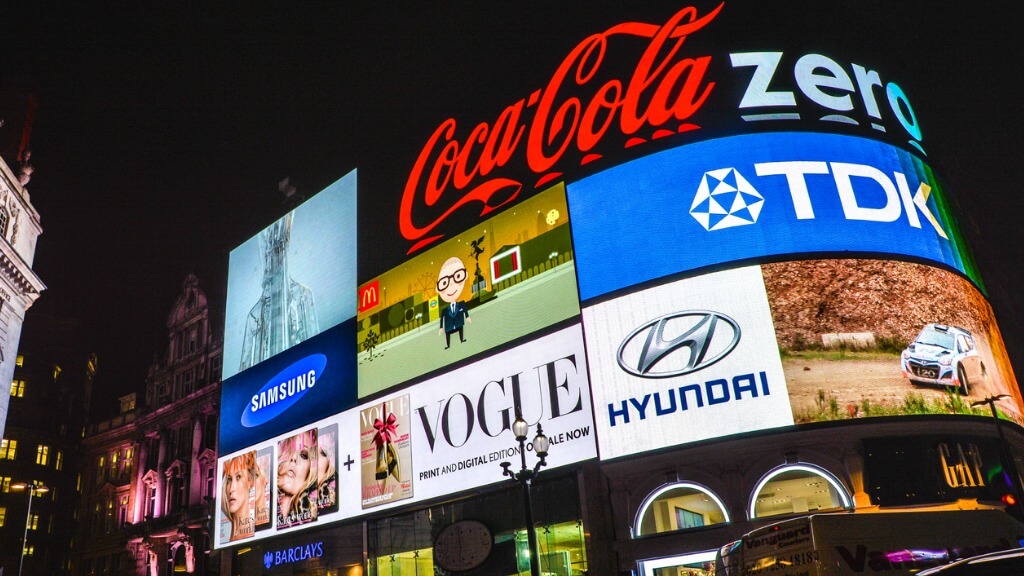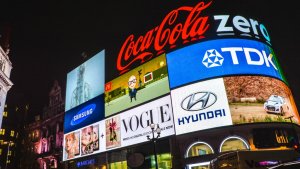Three Signs Your Rebrand Is Overdue
Lessons from Airbnb, the Premier League and Penguin.

If you're questioning whether you need a rebrand, it's probably already too late. Why? Because the best brands iterate daily to ensure they stay relevant to change happening in the world today.
Nike and Apple will never 'rebrand', they'll just continuously evolve. Brands like these don’t just stay ahead. They lead the way. But not all brands are created equal. There are three times when a company does need to consider a rebrand.
Adobe Illustrator, anyone?
So, you’re a start-up. You’re bootstrapped. Your logo was designed on a Blue Bottle coffee shop napkin in Palo Alto by some guy you met who knew Adobe Illustrator. You thought it was great, even if the investors didn’t.
But now, success is on the horizon and you’re about to hit the big time. Start-ups can learn a hell of a lot from Airbnb. It’s the single biggest brand transformation in modern branding history (even my mum knows this). Its value now is insane – the company’s revenue in Q1 2021 amounted to $886.94 million.
It’s permeated our culture so deeply that it’s become a verb. An Airbnb property even has a distinctive look. Can you even remember it before its overhaul? Back in the day, Airbnb was barely more than a clone of Booking.com. It was the same colour. It was functional. It was a transaction service. You need a good-value room, you go online, you book a bed and breakfast wherever you want to find a cheap bed and breakfast - Llandudno, say, why not - then you forget about it.
Then Airbnb moved out of this clinical, good-deal territory and levelled up. It had a new look and feel. It focused on experiences and belonging. It wasn’t just about paying for a room. A decade on, it’s a defining product. When you think Airbnb, you think adventure, you think of fond memories, you think experience, you think back to that cool flat in San Francisco.
When people ask what Booking.com makes them feel, the answer is most likely – well, nothing. It’s a forgettable transaction. It doesn’t stand for anything.
There’s an emotional response, there’s a feeling, it’s not just about the price exchange. That’s what brand can do for you when it’s done very, very well. It gives you a north star for all your ideas, rather than a scattergun approach that doesn’t add up to a coherent story in people’s minds.
The logo is just shorthand for all that brand work. It’s not about the aesthetic - it’s about the associations of the brand and the story we tell, the ideas that guide in all the experience which adds up to the image.
You’re stuck in the past
Another indicator you’re due a big change is that you’ve simply neglected your brand. It was done years ago by one of the big agencies. it was fine back then. But now? It doesn’t work in any of the new media channels that now dominate our world. It’s a static brand for billboards, and this can hold a business back if it doesn’t adapt for our digital world.
Take the Premier League. Before the rebrand it was a perfectly fine corporate brand, but it was built for broadcast. It was a lion holding a football on a plinth. It worked well on massive TVs but wasn’t fit for purpose on a smartphone.
Nowadays, you need a brand that can move with the times. Some brands are quickly losing touch, brands like Marks & Spencer and Tesco. Tesco is increasingly looking out of date and out of sync from a consumer perspective – look no further than Tesco mobile.
Who wants a mobile from a mid-range supermarket when brands like Weezy and Deliveroo are offering slick, feel good brand experiences alongside your weekly shop The world is changing quickly, and my money is on Tesco fast becoming irrelevant.
Ego overload
Another time to consider a rebrand is if you’ve merged. This can be an opportunity to create a fresh start. But be careful about what you call it.
Too often, brands aren’t brave enough to go with the one name. Consider the mess that recently became ‘Curry’s’, saving us all from the pain of ‘Dixons Carphone Warehouse’. As a name, it didn’t quite keep up with the times.
Or look at Penguin Random House. Book lovers just call it Penguin. Customers just don’t care. Someone has to concede. Don’t let ego get carried away – this isn’t ticking boxes in your Monday morning meeting, this isn’t internal showing off, it’s a consumer brand.
Too many brands take their eye off the consumer when they’re in merging-acquisition-state-your-territory-mode and want to win the war of digital onslaught. So save us all from this madness and just pick a horse.
You didn’t invest on day one
Ultimately, if you don’t bootstrap your brand and put in the money from day one, you don’t have the pain of changing it like every other successful start-up. Too many start-ups don’t see brand as important. They focus on the product and delivery and overlook it completely. But with good brand comes connection.
The biggest question though is not 'when is it time to rebrand', but 'do we change the logo?' This is what keeps CMOs up at night. Plenty of agencies will always push for change as it makes for a better case study, but we often recommend that we keep or evolve the logo, and radically change everything else.
This allows the memory pathways to remain between audience and brand, whilst creating a kit of parts that is built for today's changing world. But you can’t build those memory pathways, those valuable connections demonstrated by the Airbnb’s, Deliveroo’s and the Nike’s of this world, without a solid brand.
Stu Watson is co-founder of Nomad.
Thanks for signing up to Minutehack alerts.
Brilliant editorials heading your way soon.
Okay, Thanks!

